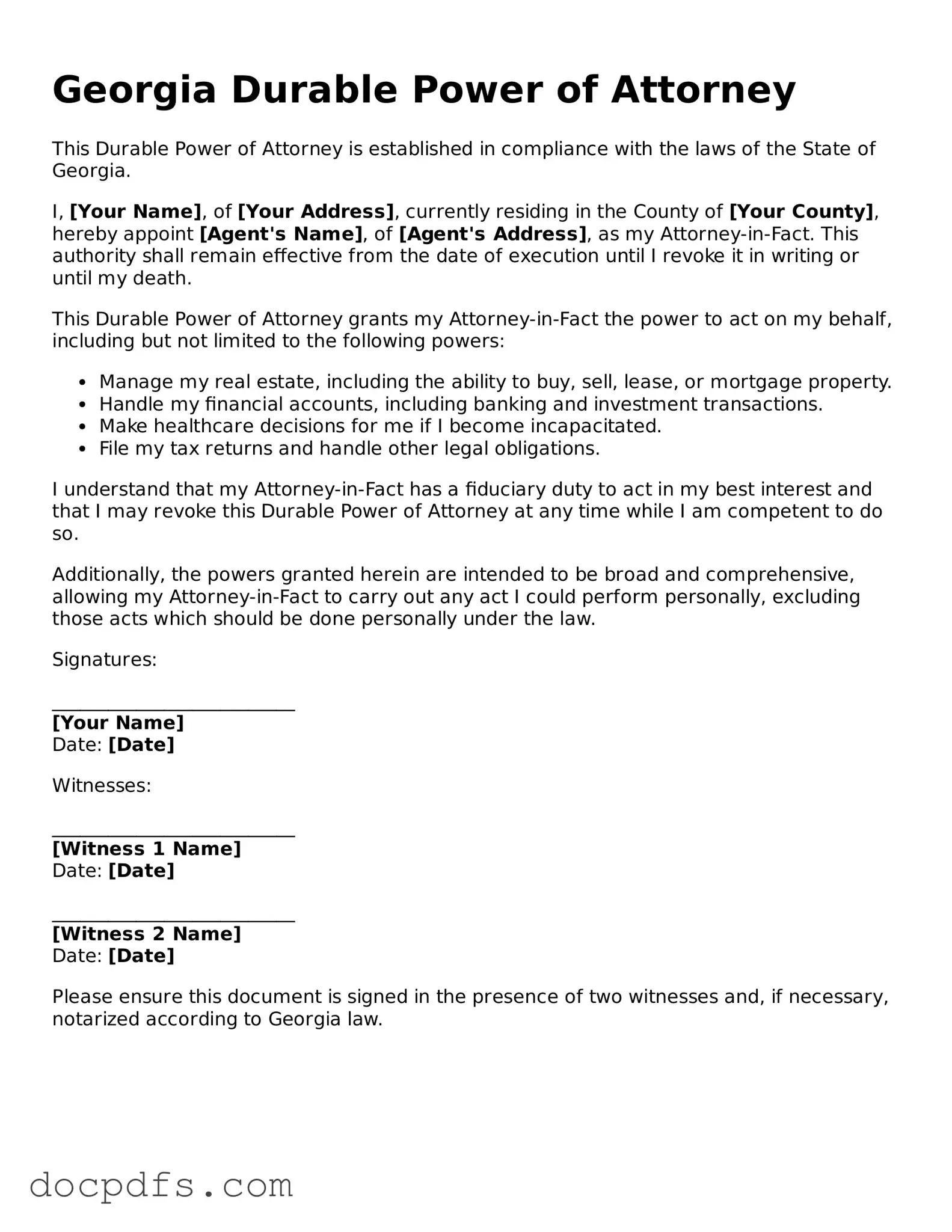Free Georgia Durable Power of Attorney Form
A Georgia Durable Power of Attorney is a legal document that allows you to designate someone to make financial and legal decisions on your behalf if you become unable to do so. This form remains effective even if you become incapacitated, ensuring that your affairs are managed according to your wishes. Understanding its importance can help you plan for the future with confidence.
Open Durable Power of Attorney Editor Now

Free Georgia Durable Power of Attorney Form
Open Durable Power of Attorney Editor Now

Open Durable Power of Attorney Editor Now
or
⇓ Durable Power of Attorney
Finish this form the fast way
Complete Durable Power of Attorney online with a smooth editing experience.